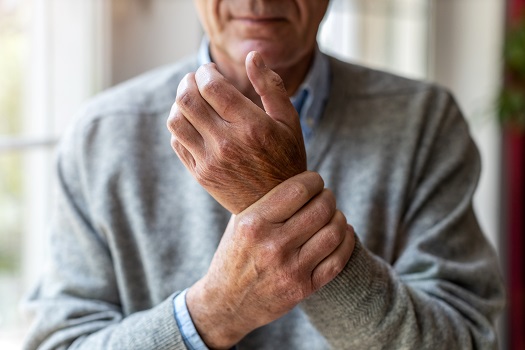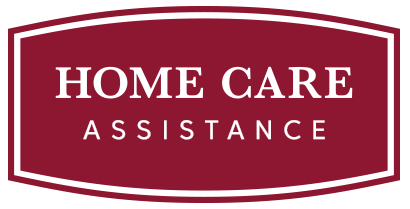4 Common Treatments for Arthritis

According to the Centers for Disease Control and Prevention (CDC), nearly 50 percent of adults in the United States aged 65 or over are living with some form of arthritis. If your elderly loved one falls into this category, finding an effective treatment is crucial. Though results may vary, the methods listed below have all proven effective at alleviating arthritis symptoms.
1. Exercise & Physical Therapy
Your loved one may be reluctant to engage in physical activity because of arthritis pain. However, a sedentary lifestyle will only exacerbate the symptoms. Gentle, low-impact activities like stretching, swimming, and water aerobics can help your loved one flex his or her joints without added stress. A physician can suggest the appropriate exercises based on your loved one’s condition or prescribe supervised physical therapy.
2. Medications
The most popular arthritis medications are nonsteroidal anti-inflammatories that target the chemical responsible for arthritis inflammation. Topical pain relievers like capsaicin and diclofenac work by irritating nerve endings and distracting the brain from the arthritis pain. Disease-modifying antirheumatic drugs such as methotrexate and sulfasalazine work by stopping autoimmune activity and other processes responsible for certain types of arthritis.
Living with arthritis can make it challenging for seniors to accomplish certain daily tasks. Aging adults who require assistance with the tasks of daily living can benefit from reliable senior care. Dallas, TX, families trust Home Care Assistance to provide the high-quality care their elderly loved ones need and deserve. Our caregivers are trained to help seniors prevent and manage serious illnesses and encourage them to make healthier decisions as they age.
3. Natural Remedies
If your loved one experiences occasional arthritis-related joint stiffness, you can suggest the following measures:
- Using hot and cold therapy – The heat from a heating pad or a warm shower or bath can ease joint stiffness and increase flexibility, and a cold pack wrapped in a towel and applied to the joint can provide quick relief by numbing the affected area.
- Adding turmeric to your loved one’s diet – Turmeric, a yellow spice often used in Indian dishes, contains curcumin, which is a natural anti-inflammatory.
- Encouraging your loved one to maintain a healthy weight – Excess weight puts added strain on joints, especially in the hips, knees, and feet. Shedding extra weight can decrease pain, increase mobility, and prevent further joint damage.
Living independently is important for seniors who want to maintain a high quality of life. For some, this simply means receiving help with tasks that have become more challenging to manage over time. Even when families have the best intentions, they may not have the time to provide the care their elderly loved ones need and deserve. If your loved one needs help for a few hours a day or a few days a week, reach out to Home Care Assistance, a trusted provider of respite care Dallas seniors can depend on.
4. Massage
Emotional stress and tension can increase the muscle stiffness and pain of arthritis. A massage using moderate pressure causes neurotransmitters in the brain to release serotonin, which naturally promotes relaxation and alleviates pain. Massage also increases circulation to the affected areas, which increases joint flexibility and range of motion. It’s best to find a massage therapist who has specific experience with arthritis.
Arthritis is just one of the many conditions seniors are susceptible to as they age. Living alone at home in the golden years can present a few unique challenges. Trust Dallas in-home care professionals to help your senior loved one maintain a higher quality of life while he or she manages an illness and performs the daily tasks of living. Home Care Assistance will work with you to customize a care plan that’s just right for your loved one’s needs. Call one of our friendly Care Managers today at (214) 363-3400 to learn more about our customized care plans.

